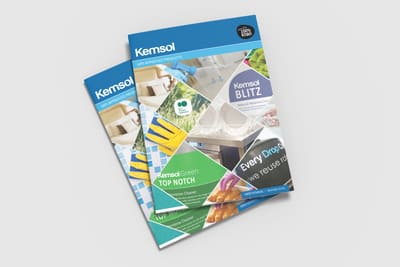How do you know if the cleaning products you’re purchasing are truly eco-friendly?
It’s common for businesses nowadays to make claims that their products and services are either eco-friendly, carbon neutral, natural, or recyclable, to name a few.
There are, however, many factors that contribute to a product’s environmental impact that go beyond the usage of the product itself.
Read on for our comprehensive guide on how to choose cleaning products that are truly friendly to the environment.
Effect of the cleaning chemical
The most obvious place to start is with the cleaning chemical itself.
Chemicals inevitably end up in the environment, whether from proper use or not.
Disposal into drains, runoff from surfaces, vapours in the air, leaching into soil from landfills and agriculture – these are just some of the ways chemicals can pollute the environment.
Therefore, it’s important that the cleaning chemicals you use consist of ingredients that are less harmful for the environment.
Be on the lookout for hazardous substances listed on product labels.
The Environmental Protection Authority has more detailed information on Hazardous substances in NZ:
https://www.epa.govt.nz/industry-areas/hazardous-substances/
Hazardous products are additionally labelled with hazard pictograms.
There are resources available with information about what each pictogram means, such as on the webpage below:
https://www.hazardoussubstances.govt.nz/workers/labels
Effects of manufacturing cleaning chemicals
A major component of environmental impact comes from the actual product manufacturing process itself.
Greenhouse gas emissions, water consumption, waste generation, raw material extraction and usage, and energy consumption are just some of the ways the manufacturing process can affect the environment.
Do you know if the company you’re purchasing from has processes in place to minimise their environmental harm?
For example, at Chemical Solutions, we have initiatives such as capturing rainwater for use in production, using automatic lights to minimise electricity usage, reducing waste water by using larger liquid blending and powder blending facilities, and formulating products based on raw materials from sustainable sources, such as coconut oil and corn syrup.
Effects of packaging
According to a consumer.org article published in 2021 [1], New Zealand ranked second-worst in the world for packaging recyclability.
This is concerning as packaging waste contributes to land and water pollution, greenhouse gas emissions and the increased presence of microplastics in our soil and water.
With most cleaning products being packaged in some form of plastic container, it’s important to use products that not only come in recyclable containers but are also delivered in a way that minimises the packaging required.
Chemical Solutions currently employs, and is constantly developing, packaging initiatives to reduce the impact caused by packaging.
These include:
- Finished product packaging being reusable and recyclable
- Recycling raw material steel drums
- Using non-permanent, easily removable labels
- Using recycled shipping pallets
We’ve also developed product ranges such as Kemsol Ultra Concentrate, which delivers large quantities of cleaning solution at a fraction of the volume of most cleaners, as well as Kemsol Green, which is both Eco Choice Aotearoa certified and only uses bottles made from 100% recycled plastic. For more information about these product ranges, visit the pages below:
https://www.kemsol.co.nz/category/kemsol-green/
https://www.kemsol.co.nz/category/ultra-concentrates/


 Log in to Media Hub
Log in to Media Hub 







